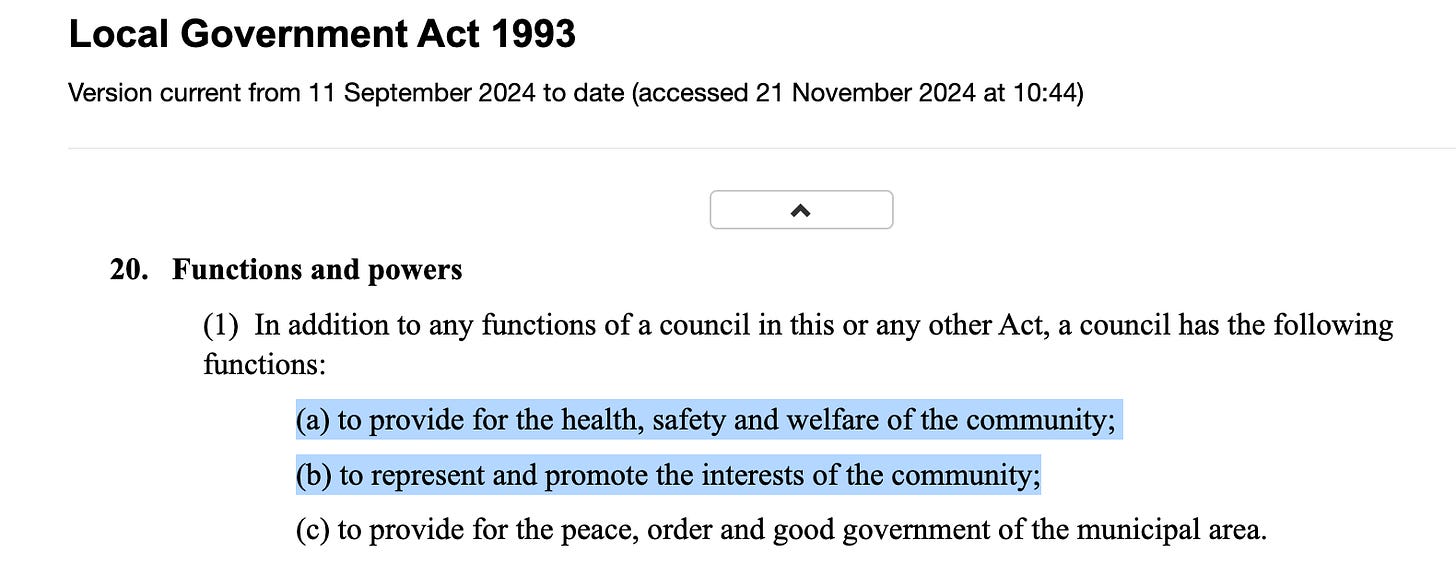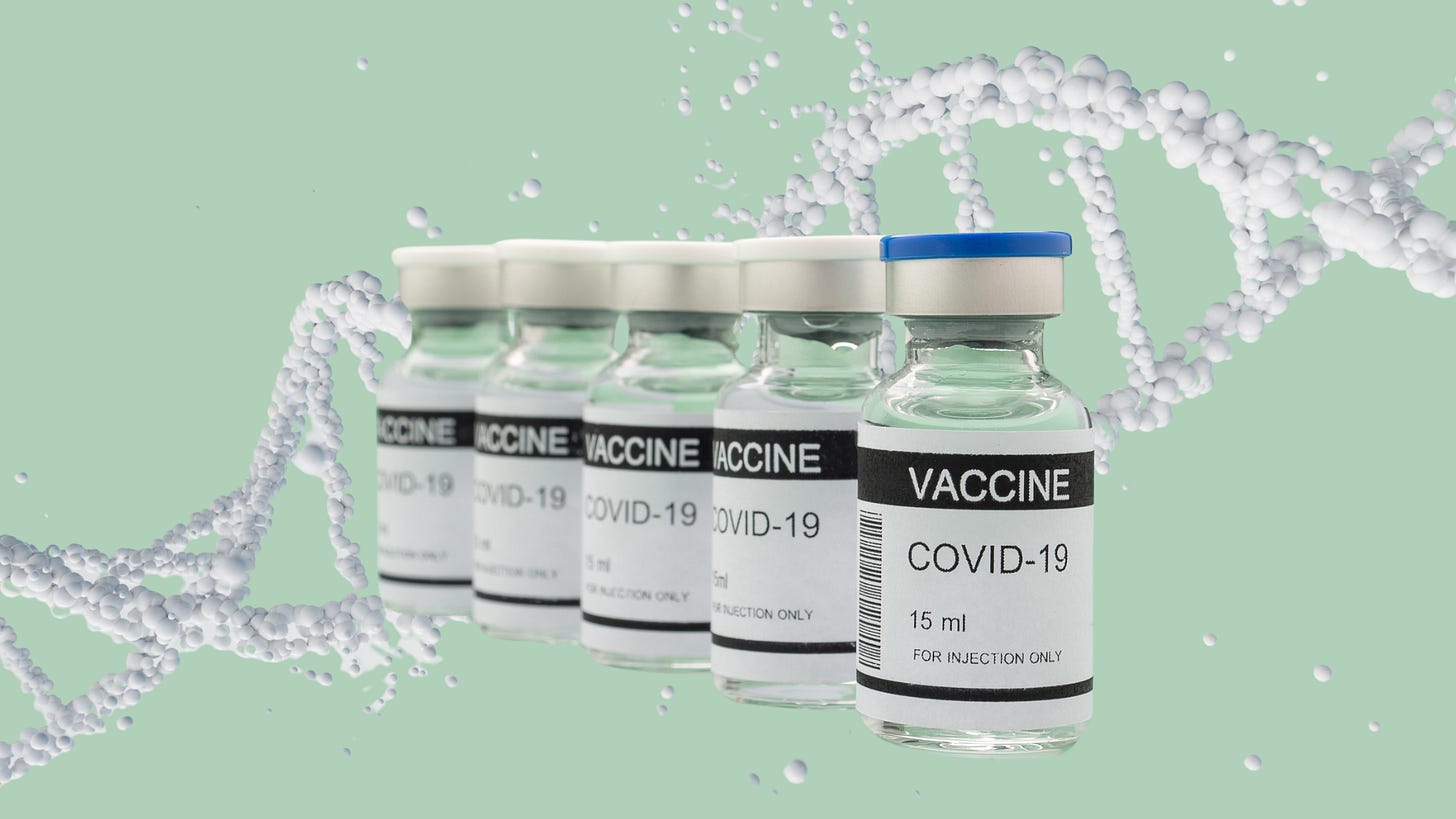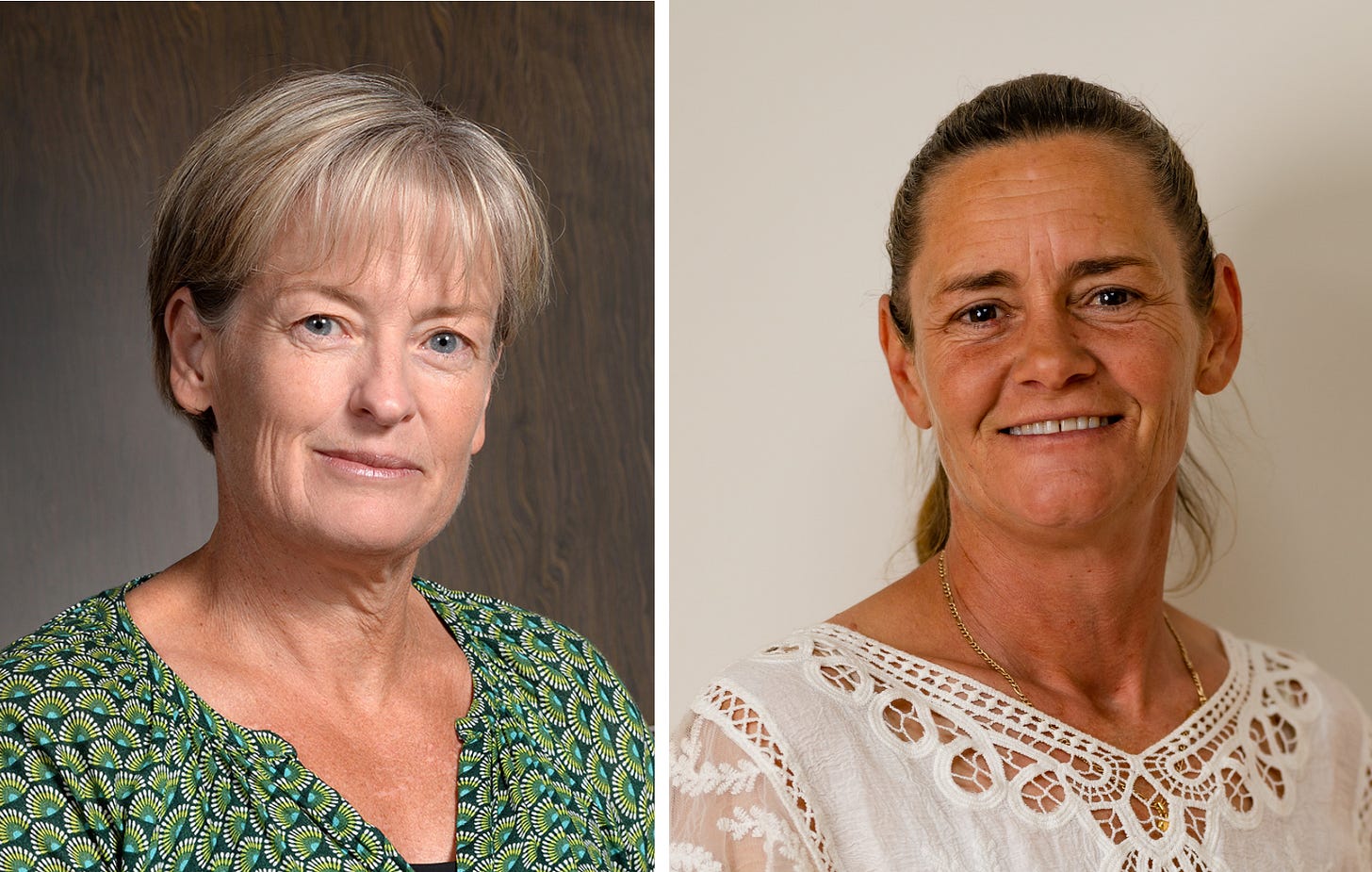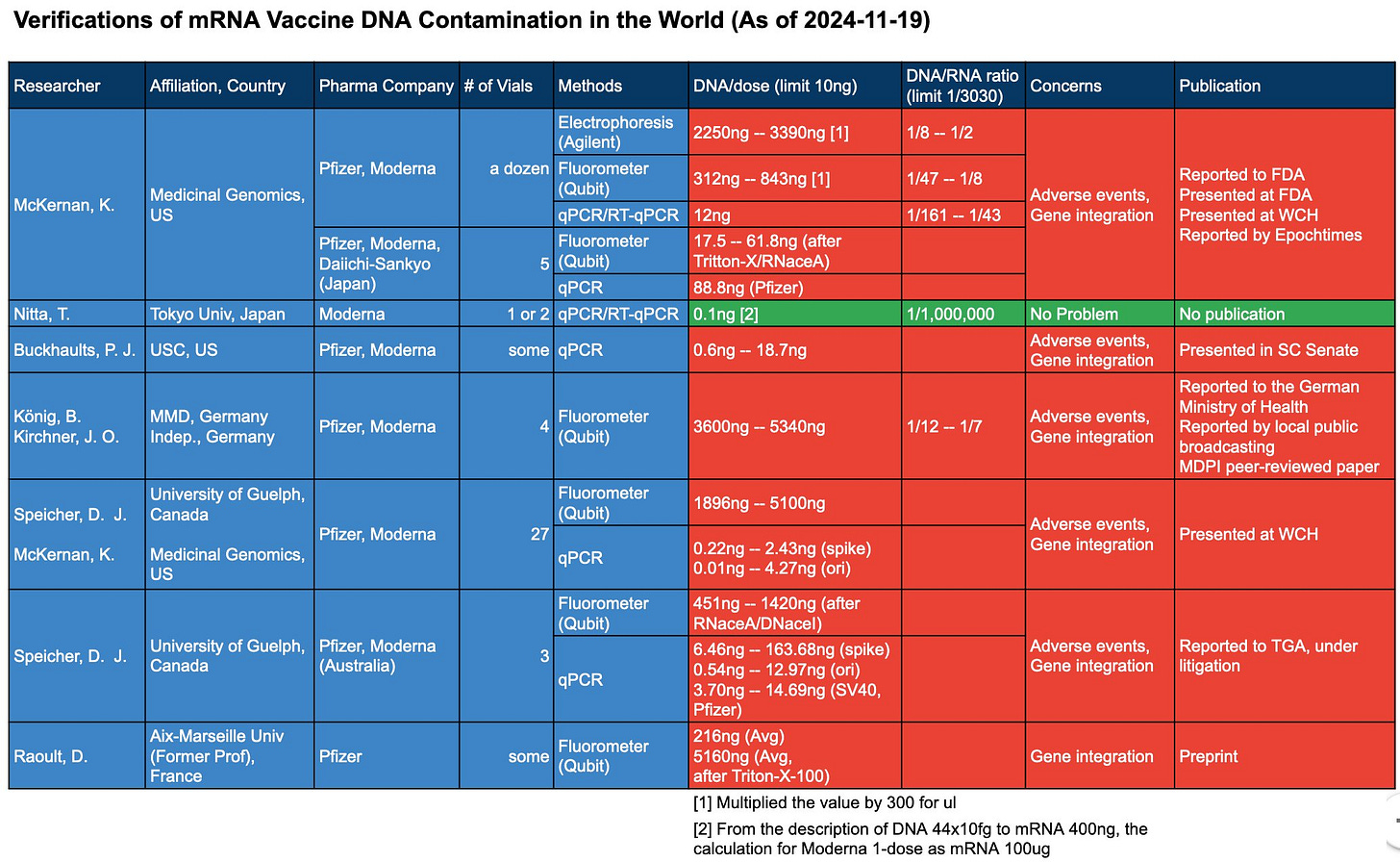Australian councils join call for action over DNA contamination in Covid mRNA vaccines
Two councils have thrown their support behind Port Hedland's historic motion of last month, calling for suspension of the shots
Two Australian local governments have joined a grassroots campaign calling for state and federal officials to take precautionary action over Covid vaccine safety concerns.
The councils of Ceduna, in South Australia, and West Tamar, in Tasmania, voted this week to formally recognise evidence of excessive synthetic DNA in Australian vials of the modified-RNA (mod-RNA) vaccines and its associated potential risks of genomic integration, cancer, and other long-term health impacts.
The contamination issue was first brought to national attention last month in a world-first motion passed by the council of West Australian mining town Port Hedland.1
In that vote, Port Hedland councillors agreed to call for the suspension of the Pfizer and Moderna Covid vaccines, and to send letters to every other local government in Australia inviting them to do the same.
Port Hedland Councillor Adrian McRae, who brought the motion, said that he hoped the Port Hedland motion would be “the ripple that creates a bigger wave across the country, and perhaps the world” on the issue of Covid vaccine safety.
The ripple builds
In a meeting yesterday, members of Ceduna Council voted to formally acknowledge the evidence and safety concerns raised in the Port Hedland motion.2
The council agreed to send written warnings to all health practitioners in the area urging them to share information about DNA contamination findings to potential Covid vaccine patients to ensure that patients can make decisions with informed consent.
The council will also write to state and federal officials to express support for letters already sent by the Port Hedland Council, and requesting a response on what steps each Department is taking to ensure patient safety.
“Approving this motion signals our dedication to prioritising community safety and well-being by championing a transparent and scientifically rigorous approach to public health,” said Councillor Hayley Nicholls, who brought the motion.
The day prior, West Tamar Council passed a motion recognising that the DNA contamination is “a public advocacy issue with potential public health implications,” and committing to “advocate on this potential public health issue to ensure community welfare and trust.”3
The council will now seek six-monthly briefings from the federal drug regulator and from the Tasmanian Government on the matter.
In a statement on X, Dr Julie Sladden, the councillor who brought the motion, said she was “grateful to the West Tamar Council for its commitment to transparency, public confidence, and accountability within our public health institutions.”
Local governments have a duty of care
Following the Port Hedland motion, the council was hit with criticism in the media that it should stay in its lane of dealing with “rates and rubbish.”
But both Crs Nicholls and Sladden highlighted that their states’ Local Government Acts require that councils respond to public health concerns.
In a video statement, Cr Sladden, a medical doctor, said that she brought the motion to West Tamar Council because, “far more than rates, roads and rubbish, local governments have responsibilities to our communities in terms of health and wellbeing.”
“The discussion of the DNA contamination issue falls within the responsibilities of local government within the responsibilities of local government by these measures.”
Cr Nicholls said it was councillors’ “ethical and legal obligation to champion the safety of our residents, especially as new information suggests that the presence of synthetic DNA in these vaccines could pose risks.”

Cr Sladden said she was pleased to see “democracy in action” at the West Tamar Council vote. “I think the community felt heard,” she said, after approximately 100 people showed up to the council meeting to share their experience of safety and health concerns relating to the mod-RNA vaccines in a “passionate but respectful” debate.
But Cr Nicholls, whose sister spent 12 days in hospital after being seriously injured by the Pfizer vaccine, is not celebrating yet. “I’ll consider it a win when the vaccines are withdrawn,” she said.
The evidence
Prior to the votes, Ceduna and West Tamar councillors received an independent report by virologist Dr David Speicher showing levels of residual synthetic DNA in the mod-RNA vaccines at up to 145 times the regulatory limit.
The DNA is present in the vaccines as a byproduct of the production process, which regulators allow at levels of up to 10 nanograms per dose. Dr Speicher’s findings of DNA levels over this 10 ng limit are supported by independent studies from Germany, the US, Canada, and France.
Councillors also received copies of letters sent to Prime Minister Anthony Albanese by independent MP Russell Broadbent highlighting the “substantial risk” of genomic integration and long-term health impacts, including cancers, and calling for “immediate action through a suspension of these products.”
The second of these letters is co-signed by 52 internationally esteemed scientists and academics including Professor of Oncology Angus Dalgleish, Emeritus Professor Wendy Hoy (AO), Emeritus Professor Robert Clancy (AM), geneticist Professor Alexandra Henrion Caude, and microbiologist Professor Sucharit Bhakdi MD.
A response to allegations by the Therapeutic Goods Administration (TGA) that media reports on DNA contamination in the shots amount to ‘misinformation’ was provided to councillors to clarify false and misleading statements made by the regulator after the Port Hedland vote created waves in the media.
Concerns raised in the materials include:
Testing inconsistencies: The TGA uses, and allows manufacturers to use, methods that result in over-measuring the mod-RNA, and under-measuring synthetic DNA in the vaccines.
Lack of consideration of the impact of lipid nanoparticles (LNPs): Current regulatory limits for residual DNA were set for naked DNA, which has a short half-life in the body. The regulators have not considered the significance of residual DNA packaged in LNPs being transported around the body and deposited into cells.
Lack of safety testing: Vaccines were approved without tests for the risks of cancer or genomic integration arising from foreign synthetic DNA in LNPs.
SV40 enhancer/promoter in the Pfizer vaccine: A known gene therapy tool, this DNA sequence was not disclosed to regulators by Pfizer prior to provisional approvals. The SV40 enhancer/promoter is used to drag material into the nucleus of cells, increasing the aforementioned risks of cancer and genomic integration.
No investigation: The TGA has dismissed independent findings of high levels of residual synthetic DNA in the mod-RNA Covid vaccines and the related risks, but has not contacted any of the scientists to discuss their work, nor has it addressed concerns raised by these experts about the current regulatory guidelines and testing procedures.
Official denial
The TGA has strongly denied claims that the Covid mod-RNA vaccines contain residual synthetic DNA at levels above the regulatory limit, or that the SV40 enhancer/promoter gene therapy sequence in LNPs poses any potential risk.
Media reports claimed that the independent studies and communications from experts presented to the councils have been ‘debunked’, when in fact they have been denied without evidence.
Responding to Broadbent’s letters, Health Minister Mark Butler wrote that Dr Speicher’s findings of excessive DNA in Australian vials of the vaccines were “not the case” and reiterated the official position that “the COVID-19 mRNA vaccines are safe and do not contain excessive amounts of DNA.”
Under renewed scrutiny on the issue, the TGA finally issued a summary report this month on the 28 batches of mod-RNA vaccines that it has independently tested, claiming that all batches meet internationally agreed limits for residual DNA and endotoxin.
However, more detailed batch testing results remain fully redacted, and the TGA is yet to address criticisms that the testing protocol used by the TGA will underestimate DNA levels in the vaccines by up to 100-fold.
These problems and more are discussed further in the article, ‘Addressing allegations that DNA contamination in the mRNA shots is ‘misinformation’:
Addressing allegations that DNA contamination in the mRNA shots is ‘misinformation’
Following increased public interest in the issue of excessive synthetic DNA contamination in the modified RNA (mod-RNA) Covid vaccines, Australia’s drug regulator, the Therapeutic Goods Administration (TGA) issued a statement alleging that the scientific evidence of the contamination is invalid, and that online reporting of the issue is “misinformation.”
A ripple to become a wave?
As officials continue to deny the problem, evidence of excessive residual DNA in the mod-RNA vaccines continues to build, driving community discussion and action.
A new preprint by French microbiologist Didier Raoult claiming detection of high levels of residual DNA in the Pfizer Covid vaccine has renewed focus on the contamination issue. A German study finding no excess DNA was also published last week. (See genomics scientist Kevin McKernan’s commentary on Substack for discussion of strengths and shortcomings of both papers).4
Three Australian local governments have now taken action to call for further investigation into the contamination issue, and more meetings are planned in other local government areas.
The matter was raised in the Federal Parliament this week as well, in an address by Broadbent reiterating his calls to stop the shots, and for a proper official assessment of independent evidence of contamination.
Overseas, Florida Surgeon General Dr Joseph A. Ladapo called for a halt to the Covid mod-RNA vaccine program over the DNA contamination issue in December last year, and the Southwest District Health in Idaho voted last month to remove the Covid shots from all 30 of their health clinics across six counties.
Cr McRae may see his Port Hedland motion ripple become a wave.
“It’s so refreshing to see the grassroots movement of people rising up,” he said.
“These council votes sent a very clear message to state and federal leaders that the people of Australia will no longer tolerate the lies, the censorship and the secrecy of our public health institutions.”
Learn more about the Port Hedland motion and scientific evidence underpinning the safety concerns arising from excessive synthetic DNA in the Pfizer and Moderna vaccines at the Port Hedland motion website.
To support my work, share, subscribe, and/or make a one-off contribution to my Kofi account. Thanks!
The TGA and other international drug regulators insist that the vaccines are not contaminated because residual DNA is an expected byproduct of the production process. Allowing for this interpretation by regulators, in this article the term ‘contamination’ is used to refer to excessive levels of residual DNA in the mod-RNA Covid vaccines, i.e.: DNA that by the regulators’ own standards should not be there.
Ceduna Council Agenda Wednesday 20 November 2024. Motion pp. 5-9
West Tamar Council Agenda Tuesday 19 November 2024. Motion pp. 145-146
This takes the number of independent studies testing for residual DNA levels in the Covid mod-RNA vaccines to eight. All but the new German paper are compiled in the below chart by Japanese medical statistician Kenji Fujikawa.






Julie Sladden for Australian of the year.
TGA fully compromised by Big Pharma funding.
Mark Butler's qualifications to speak as health minister?
Arts/Law the Masters in International Relations.
Roger Cook? Arts and MBA.
Who of the above should stick to their knitting?
Here's hoping the 'official' facade is cracking...